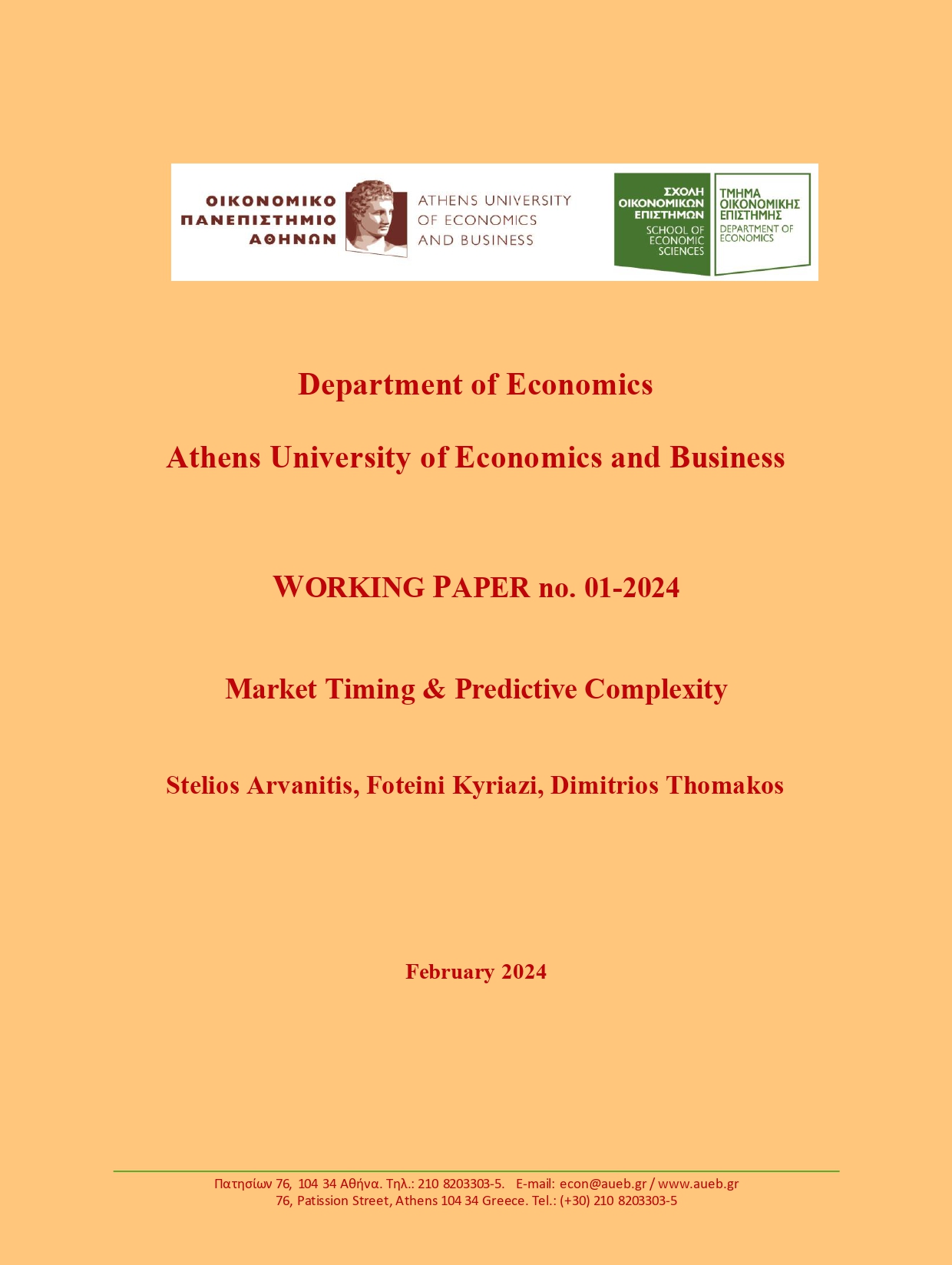Ανάρτηση Ερευνητικoύ Δοκιμίου no 01/24
Περίληψη
We propose a new method for selecting the local estimation window for forecasting and trading financial returns. It is built around one particular definition of predictive complexity and we apply it in the simplest of predictors, the sample mean. We derive the exact conditions for the process of optimally selecting the local estimation window among a, theoretically found, grid of potential values of it. We use different loss functions, statistical and financial, which are considered individually and then pooled under two selection concepts, stochastic dominance and minimum description length, and find exact expressions as to how the associated complexities and their combinations can be derived and applied. Our results are based on a set of probabilistic assumptions for the time series under study and, based on those, we offer an inferential procedure for testing the presence of excess trading returns. Our empirical illustration on a set of diverse exchange trade funds (ETFs) across different asset classes suggests that the method works very well in practice and that it can generate both statistical and financial performance enhancements. A number of extensions to different predictors and different underlying assumptions is discussed.
Ο Στυλιανός Αρβανίτης είναι Καθηγητής στο τμήμα Οικονομικής Επιστήμης του Οικονομικού Πανεπιστημίου Αθηνών, η Φωτεινή Κυριαζή είναι Επίκουρη Καθηγήτρια στο τμήμα Διοίκησης Γεωργικών Επιχειρήσεων και Συστημάτων του Γεωπονικού Πανεπιστημίου Αθηνών και ο Δημήτριος Θωμάκος είναι Καθηγητής στο τμήμα Διοίκησης Επιχειρήσεων και Οργανισμών του Εθνικού και Καποδιστριακού Πανεπιστημίου Αθηνών.






 Πατησίων 76
Πατησίων 76 2108203 303
2108203 303
